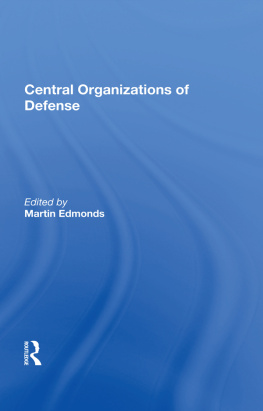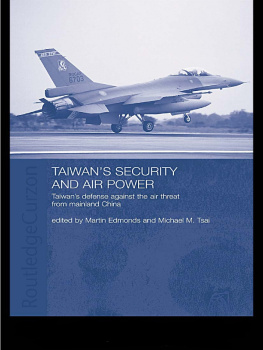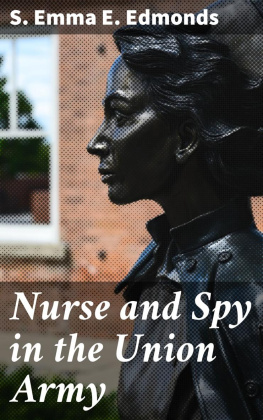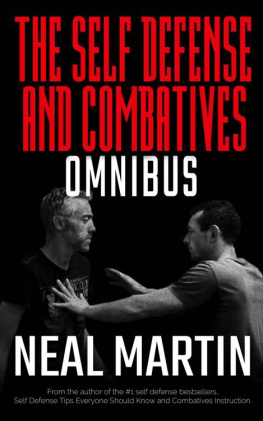Central Organizations of Defense
Westview Special Studies in Military Affairs
Central Organizations of Defense
edited by Martin Edmonds
Defense and strategic studies traditionally have paid little attention to the structure and administrative context within which policy decisions are made. This volume fills that existing gap, focusing on the principal actors in the defense decisionmaking field, their relationships to one another, and the statutory and legal provisions governing the spheres of responsibility and competence among military, civil, and paramilitary institutions.
The book is designed to assist scholars and policymakers in comparative analyses of complex organizations and institutions and to identify similarities and differences among the central administrative structures of the major industrial states. Toward this end, each contributor concentrates on his or her own transnational analysis. The authors are all respected experts on defense issues in their own countries, and their analyses conform to a common framework developed to compare central organizations of defense around the world and to define what states can learn from each others experiences and what developments can be expected.
Martin Edmonds is senior lecturer in higher defense studies at the University of Lancaster. He previously taught at the University of Manchester and the University of Southern California and has been a research associate at Columbia University. His publications include War in the Next Decade (coedited with Roger Beaumont, 1975), International Arms Procurement (1981), and over fifty articles on defense and military studies. He is the editor-in-chief of a major new journal, Defense Analysis.
First published 1985 by Westview Press
Published 2018 by Routledge
52 Vanderbilt Avenue, New York, NY 10017
2 Park Square, Milton Park, Abingdon, Oxon OX14 4RN
Routledge is an imprint of the Taylor & Francis Group, an informa business
Copyright 1985 by Taylor & Francis
All rights reserved. No part of this book may be reprinted or reproduced or utilised in any form or by any electronic, mechanical, or other means, now known or hereafter invented, including photocopying and recording, or in any information storage or retrieval system, without permission in writing from the publishers.
Notice:
Product or corporate names may be trademarks or registered trademarks, and are used only for identification and explanation without intent to infringe.
Library of Congress Cataloging in Publication Data
Main entry under title:
Central organizations of defense.
(Westview special studies in military affairs)
Includes index.
1. Military policyDecision makingAddresses, essays,
lectures. I. Edmonds, Martin, 1939 . II. Series.
UA11.C45 1985 351.06 85-3191
ISBN 0-86531-684-8
British Cataloguing in Publication Data
Central organizations of defense.
1. Defense departments
I. Edmonds, Martin
351.06 UA10
ISBN 0-86187-507-9
ISBN 13: 978-0-367-01485-8 (hbk)
In fond memory of my parents, Wallace and Phyllis Edmonds
Contents
, Martin Edmonds
, Gerald Segal
, Jean-Pierre Marichy
, Wilfried Freiherr von Bredow
, Martin Edmonds
, Virgilio Ilari
, Masashi Nishihara
, Reidar Lauritz God
, Robert H. Baker
, Jos-Maria Comas
, Karen A. McPherson
The notion of compiling and editing a volume on central organizations of defense had been with me for several yearsin fact, since I began teaching civil-military relations in the mid-1960s. Each year I took the easy way out and gave my students general outlines of the countries that seemed most relevant at the time. But as the years passed and as defense expenditures everywhere mounted, I perceived an increasing need for a volume that spelled out the issues associated with the making of defense policy and described the context within which it was made. The last straw came about two years ago when discussions of Soviet and U.S. strategic policy and of European responses to plans for strategic stability in Europe were articulated and analyzed in highly personalized terms, with no recognition of, or apparent reference to, the interplay of political, bureaucratic, military, scientific, and economic forces that constrain options and shape preferred solutions.
The time had come, I felt, to remind everyone that the defense policies of nations and states are the product of the interplay of powerful interests, all operating within well-defined structures, according to generally recognized and prescribed processes and within a wide range of different political systems. Furthermore, the interaction of these powerful forces takes place within the wider context of domestic and international economic, political, and social considerations.
The volume seemed to be an important contribution to the ongoing discussions of defense and strategic issues, but it also offered a rare opportunity to encourage a fresh look at the problems associated with comparative political analysis, in particular the comparison of a major department of government across a variety of states in an area of central political concern.
Once the commitment to embark on the project had been made, two further decisions were necessary. The first was to ask contributors to work within a common analytical framework, which is outlined in central organizations of defense would not be overlooked because of a lack of immediate and intimate familiarity.
But neither objective was wholly achieved. Several contributors pointed out that the political systems and historical contexts of their particular state did not lend themselves to the comparative framework I had given them; their compromise was to employ it where appropriate and depart from it where necessary. The second objective foundered on the rocks of the reluctance of relevant authorities, but in most cases our authors succeeded. To them I owe a debt of gratitude for their great efforts, especially those who wrote for an essentially foreign audience in a foreign language.
This was not possible in all cases, and I must record my most sincere thanks to all those who helped me to translate and get the best from those contributions that were not in English. In no specific order of relevance I thank sincerely and warmly Michelle Fournier, Anne Mandeville, Bob Baker, and Fiona Knowles-Lote for their linguistic help and support and for their kind forbearance when I insisted on altering their more elegant prose, and colleague David Weston for his reassurance that I was not always too far off the mark.
To Lynne Rienner and Deborah Lynes at Westview Press and to Frances Pinter, I wish to record my appreciation of their respective support for and confidence in the pertinence of this volume and of their quite remarkable patience. To Christine Arden at Westview I owe a particular debt of gratitude for her exceptional copy editing, which improved the volume immeasurably. And to Valerie Mingay, for typing, retyping, word processing, and generally enduring my irascibility throughout the project, I give my special thanks.
Martin Edmonds
1
Introduction










